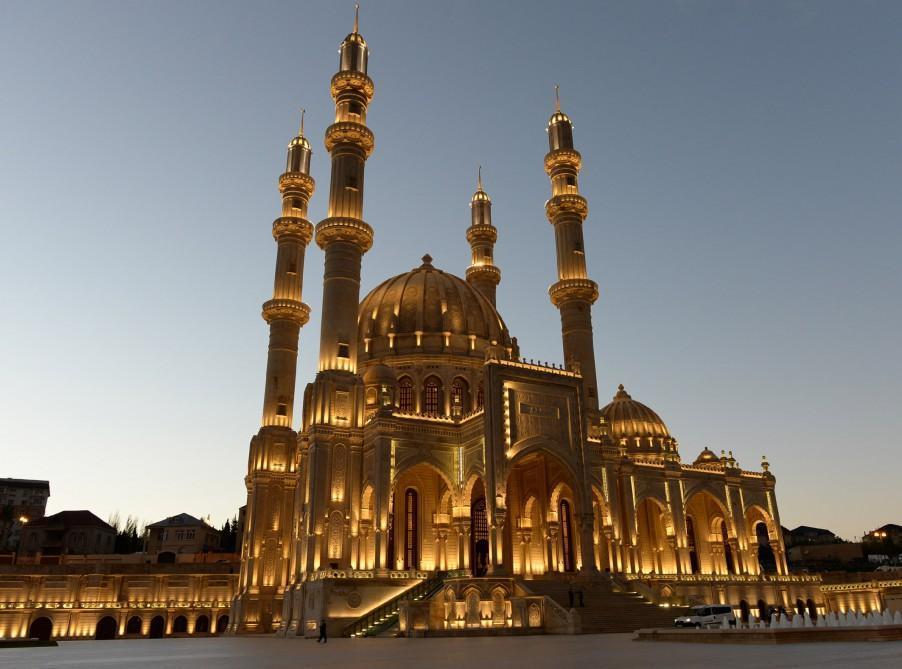
The sacred holiday Ramazan was determined for the Moslems in the second pilgrimage year (year 622). Ramazan teaches people how to love Allah, to test their will and patience, it makes people be clever and honest and is celebrating in the form of fasting.
The history of Orujlug (fasting) starts when the prophet Muhammed determined the month Ramazan for this holiday in Madina on the second pilgrimage year. Koran was given to us on one of the third 10 days of this month. As said, this might happen either on the night from 23rd to 24th or on the night from 26th to 27th. This night is called "Laylat alkadr"-meaning the great, powerful night. Koran says: "We really create power and grandeur on that night, that night is more grandiose among thousand of months, the angels low down on the earth and wait for orders from Allah, peace is brought to the world on this night till the sun-birth" (97:1-5).
It is prohibited to eat, drink, smoke, and engage in marriage duties in the light part of the day. The exception is given only to children, to the patients, the pregnant, fighting in the war, and voyagers (travelers). Fasting starts in Ramazan from the day when the new moon is seen and continues for 29-30 days. Koran says: "Eat and drink till you may distinguish white and black thread, then fast till it gets dark" (2:187).
Fasting existed before Islam. The ancient Arabians fastened for the sake of their Gods. Koran says: "Fasting ordered to you as it had been ordered to your predecessors".
Fasting is completed with the holiday of "id al-fitr". All the wealthy Moslems on that day should help the poor. All the members of the family should be taken into consideration while making fitra. Orujlug is celebrated officially since 1993.
Ramadan Holiday lasts 2 days.
Note: since 2006, when a public holiday falls on a day off, the next business day is considered non-working.



